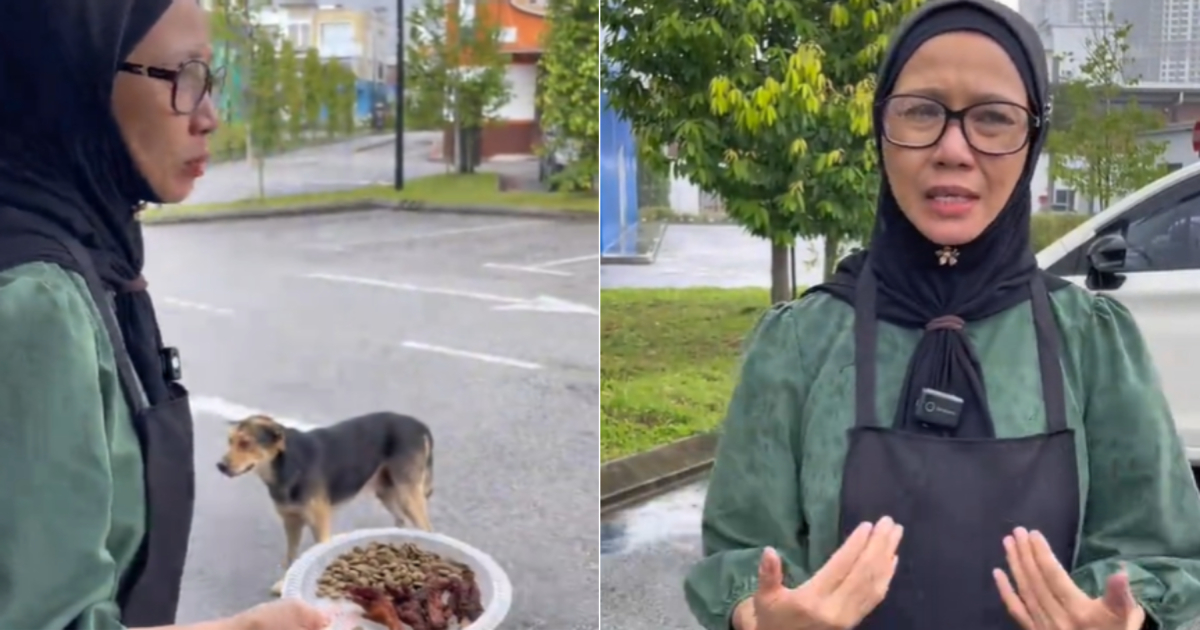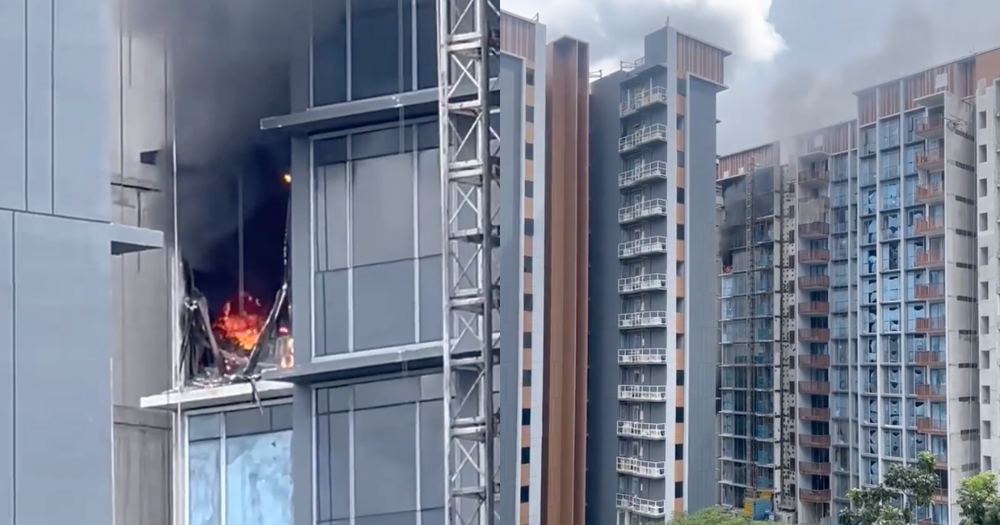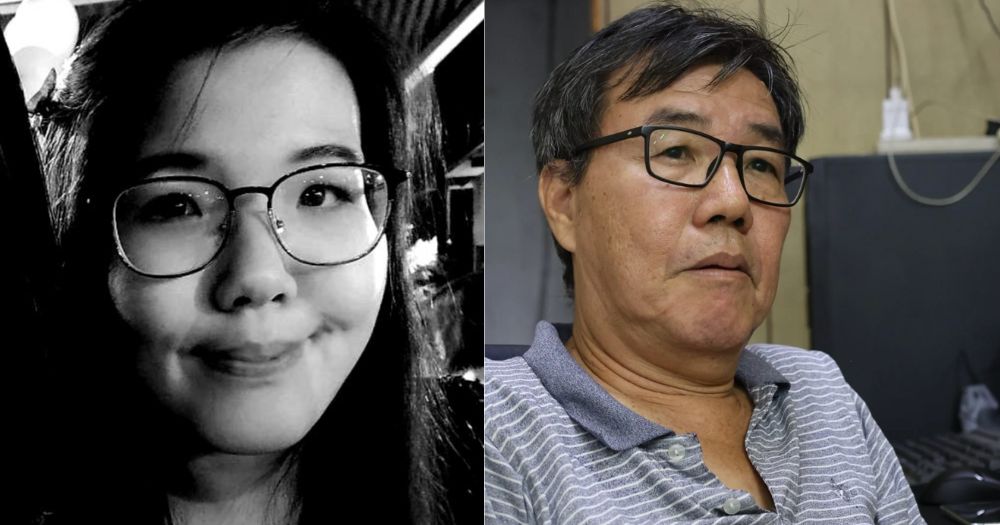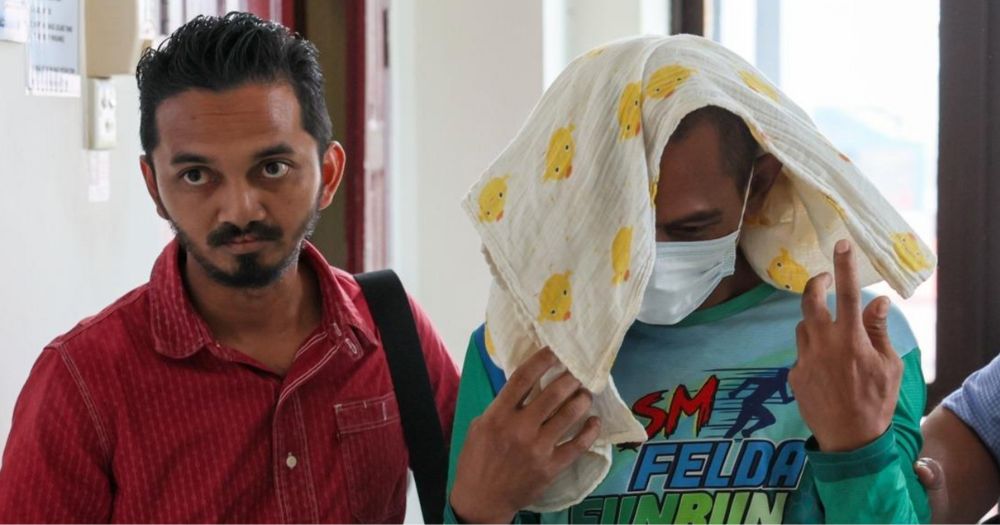Comment: The inflation narration is the explanation for a 2025 general election
James Carville said it best.
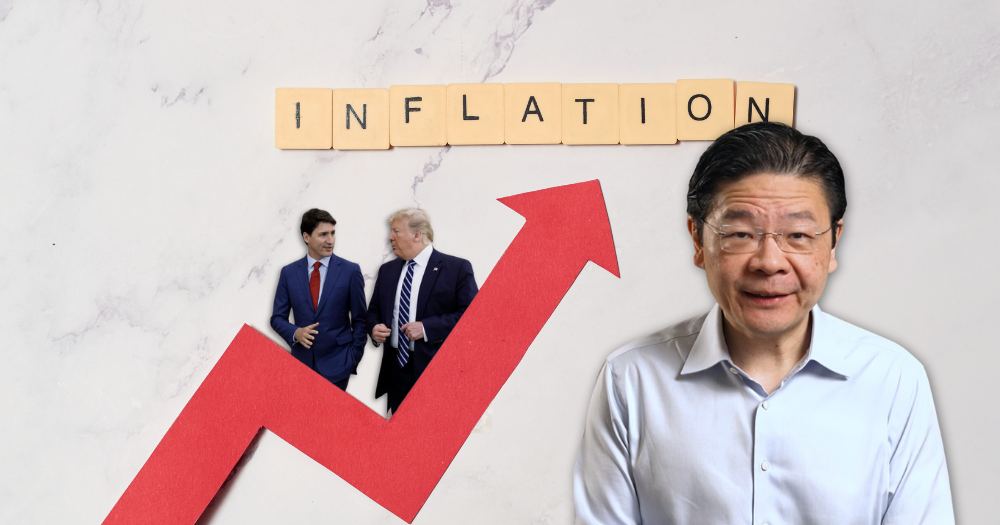
Why did Kamala Harris lose the 2024 U.S. presidential election to Donald Trump?
This may seem out of left field, but understanding this could be the key to predicting the date of Singapore's next general election.
"Year of Democracy"
2024 is an unusually active year in terms of electoral democracies. Many countries, from superpowers like the U.S. to smaller countries like Sri Lanka, went to the polls to choose their next government.
The year is nearly over and a strong trend has emerged.
A Financial Times infographic that made the rounds on social media does a good job of visualising this.
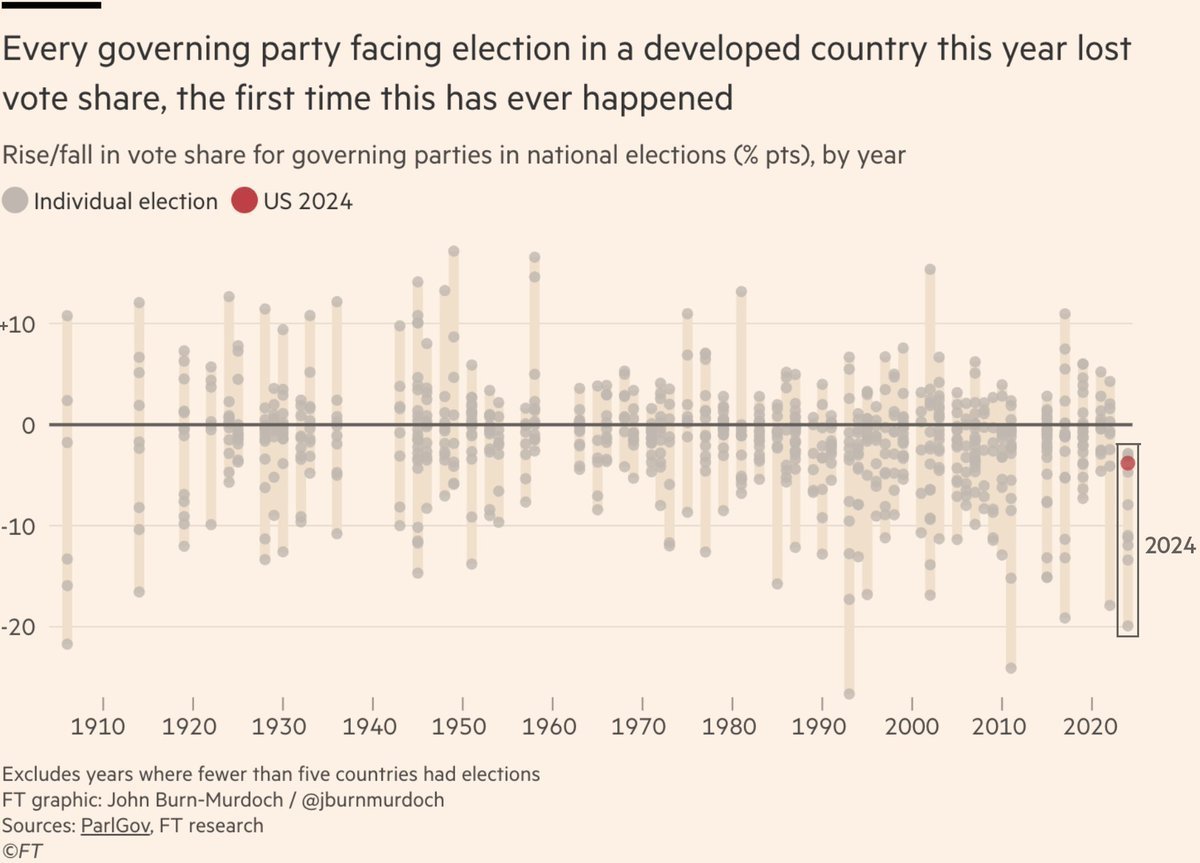
As John Burn-Murdoch wrote for the FT:
"...the economic and geopolitical conditions of the past year or two have created arguably the most hostile environment in history for incumbent parties and politicians across the developed world.
From America’s Democrats to Britain’s Tories, Emmanuel’s Macron’s Ensemble coalition to Japan’s Liberal Democrats, even to Narendra Modi’s erstwhile dominant BJP, governing parties and leaders have undergone an unprecedented series of reversals this year.
The incumbents in every single one of the 10 major countries that have been tracked by the ParlGov global research project and held national elections in 2024 were given a kicking by voters. This is the first time this has ever happened in almost 120 years of records."
And it's eerily consistent. Beginning with the Taiwan elections at the start of the year, incumbent governments have received a battering. Some have lost their grip on power altogether.
But even if voters don't kick out the ruling party entirely, they still suffered big losses.
As Burn-Murdoch mentioned, Modi's BJP in India lost their formidable majority in parliament.
Same for the once-dominant Liberal Democrats in Japan.
In fact, just about the only incumbent that hasn't suffered a serious, post-Covid-pandemic reversal in an election this year is President Vladimir Putin of Russia.
Which in itself should give you a clue.
Inflation is the explanation
What's the reason? In a word, inflation.
The post-pandemic environment, where governments like the U.S. enacted big stimulus programmes and global supply chains faced problems, led to an overheated global economy and high inflation.
This drove up prices, and in multiple surveys taken before, during and after the U.S. election, voters consistently cited "high prices" as a major reason for their dissatisfaction with the Biden Administration.
One can quibble that Harris was too woke or not woke enough or that she should have pushed Biden away or defended Biden's record better or picked Josh Shapiro over Tim Walz as a running mate or went on the Joe Rogan podcast and so on ad infinitum.
But at the end of the day, Bill Clinton's political guru James Carville hit the nail on the head when he uttered his immortal line back in 1992: "It's the economy, stupid."
GE coming, but when?
So what does any of this have to do with Singapore?
Well unless you've been living under a rock, you would have picked up chatter that the next general election could be held in 2024.
Lawrence Wong took over as prime minister from Lee Hsien Loong in May 2024, who then became senior minister. And since then, the chatter on GE has intensified.
The Singapore Democratic Party (SDP) held a "GE2024 campaign launch", also in May 2024, while the Workers' Party (WP) has been asking Minister Chan Chun Sing in parliament whether the electoral boundaries review committee, which determines the constituency boundaries ahead of a general election, has been formed.
Recently, PM Wong was also asked by the media (Nov. 8) on whether the Electoral Boundaries Review Committee (EBRC) had been convened.
In his regular press conference with the local media, he told them that the EBRC has not yet been convened and he had not decided on when the GE will be held.
PM Wong could go one of two ways.
He could call for an early election after budget in April or May 2025.
Or he could call for a later election after SG60 and after his second National Day Rally in late August or September 2025.
The next general election must be called by Nov. 2025.
Cat out of the bag
We had a big clue on the night of Nov. 23, when SM Lee gave a speech at a party awards dinner.
Near the end, he said: "I think we all have to work hard. There's a general election coming next year."
SM Lee's remark caused a bit of a stir, which he acknowledged in his speech the next day, Nov. 24, at the PAP conference.
"Last night, I said 'next year' and people drew all kinds of inferences, so precisely, by the end of next year," he said.
Meanwhile, PM Wong was less coy.
"Comrades, this will be our last party conference before the general election, and I can say, before the next general election next year. It will be next year."
Inflation consternation
PM Wong not only revealed that the GE would not be in 2024, he also decided to speak very frankly about political downturns worldwide caused by inflation.
"I know that Singaporeans are concerned about the cost of living. It is not unique to us in Singapore. Countries everywhere face similar pressures because of the recent spike in global inflation over the recent months.
Inflation in many of these places, including Singapore, has moderated, but price levels remain higher than before, and this impacts on people's sense of well being."
He continued:
"So you just take a look at the outcomes of elections held this year across many countries.
Frustration with rising cost of living overshadowed other matters, and contributed to a very strong sense of anti-incumbency feeling. Meaning whoever is the incumbent in power, there is a strong feeling against that incumbent party.
And so every governing party in a developed country that held elections this year has lost vote share.
Quite a number have lost the mandate to govern altogether."
Govt doing all it can to help Singaporeans with higher cost of living: PM Wong
PM Wong said he hoped Singaporeans would understand these are global inflation trends which impact all countries, but the Singapore government is doing its best to "shield all of us" from the worst effects of inflation.
He reminded Singaporeans of the support packages that have been rolled out over the past years, and more assistance to come in Dec. 2024 and Jan. 2025 from the Assurance Package and another tranche of CDC vouchers.
He also mentioned that in his other role as Finance Minister, he is preparing for next year's Budget, where Singaporeans can expect more support.
"So as a government and as a party, we are doing all that we can, and we can truly say that, hand on heart, we are doing all that we can to help Singaporeans cope with [the] higher cost of living," he said.
Some degree of economic uncertainty
Given that the PAP has a runway ahead before the next election, it may be tempting to push it back as far as possible, in the hopes of the global inflationary pressures receding.
Core inflation fell to 2.1 per cent as of end-October 2024, the lowest level since December 2024.
But storm clouds lie on the horizon.
President-elect Trump has already declared in stark terms his intention to impose large tariffs, not just on geopolitical rival China, but also America's close partners and allies Mexico and Canada.
Mexico, in turn, has threatened to impose retaliatory tariffs on the U.S.
We can't be certain what will take place this far out, but some degree of economic uncertainty undoubtedly lies ahead.
Top image via Canva, Lawrence Wong/Facebook, Justin Trudeau/Facebook
MORE STORIES








